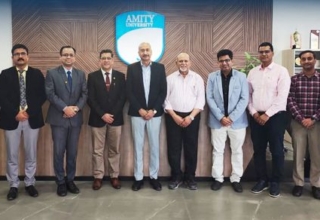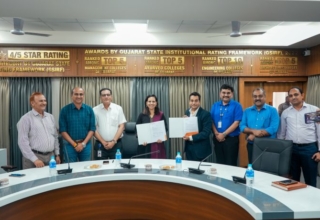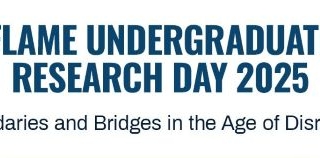
By analyzing water samples across all four seasons of Dhansiri, a major River in the North East, the study offers a detailed understanding of seasonal variations influenced by various anthropogenic activities as well as climatic variables.
This study concentrates on a largely neglected river system in North East India and addresses a significant research gap by emphasising a lesser-known, yet ecologically and culturally significant river.
The Dhansiri River faces escalating pollution resulting from anthropogenic activities, including urbanisation, discharges from towns, agricultural runoff and inadequate domestic waste management, which have severely deteriorated the river’s water quality.
Hence, the researchers attempted to evaluate the seasonal fluctuations in the physicochemical parameters of the river at three distinct locations – upstream, middle and downstream stations and thereby estimate the seasonal Water Quality Index (WQI) rating for checking the potability of the water fit for human purpose.
This research was led by Dr. M. Romeo Singh, Associate Professor, Department of Botany, Nagaland University. The research focused on assessing the water quality of the Dhansiri River in Northeast India using the Water Quality Index (WQI) technique.
By analysing water samples across all four seasons and examining 16 physicochemical parameters, the study offers a detailed understanding of seasonal variations influenced by the climatic changes. The study employed the Weighted Arithmetic Index (WAI) technique, which allocates varying weights to each water parameter according to its influence on health and water quality. This detailed and quantitative approach provides a more refined evaluation than the simpler or unweighted indices.
The researchers found that various water quality parameters, including turbidity and total alkalinity, exceeded national and World Health Organization (WHO) guidelines, particularly in the summer months. The downstream areas were primarily affected, categorising the water as ‘non-potable’ and ‘unfit for consumption’, highlighting the urgent need for improved water quality.
Water quality improved in winter and drastically declined in summer, attributed to increased runoff and elevated temperatures impacting metrics such as turbidity, total dissolved solids (TDS) and biochemical oxygen demand (BOD). Turbidity surpassed the allowable threshold in all seasons, although total alkalinity (TA) exceeded restrictions during winter.
This study analyses three locations and emphasises geographical pollution gradients resulting from human activities, illustrating the accumulation of contamination in the downstream. The study establishes a robust basis for targeted policy responses by identifying key anthropogenic stressors, including municipal garbage, religious practices, urban runoff and sand mining. It establishes a standard for river water quality studies in neglected areas.
The Researchers had also published some of their findings in the International Journal of Environmental Science and Technology (DOI: https://doi.org/10.1007/s13762-021-03897-9) during 2022.
The report prepared by the Nagaland University Researchers recommends relocation of dumping sites, prohibition of direct trash discharge, adoption of advanced wastewater treatment techniques, improving drainage systems and establishment of robust regional water management policies. Regular monitoring and community education and awareness are crucial for rehabilitating the river’s ecosystem and guaranteeing safe water for the populations.
Elaborating on this research, Dr. M. Romeo Singh, Associate Professor, Department of Botany, Nagaland University, said, “This study serves as an essential basis for the sustainable restoration of the Dhansiri River and comparable neglected water bodies in India. If its recommendations are executed, it can initiate a paradigm of river restoration that integrates scientific knowledge, community engagement, and policy reform, thereby benefiting society and enhancing the nation’s resilience to environmental stresses.”
Dr. M. Romeo Singh added, “Implementing the measures we had suggested for the Dhansiri River can substantially enhance the welfare of the residential populations and the overall environmental health of the Nation. Cleaner water will reduce the risk of diseases and support sustainable agriculture through safer irrigation. Efforts to control pollution will facilitate ecological restoration, improving biodiversity and natural ecosystems. Future research can investigate biological indicators for bioassessment and will encompass the examination of heavy metals and emerging pollutants in later phases.”








